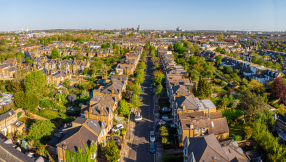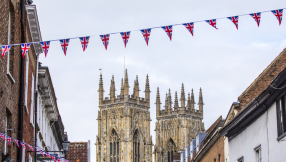Youth 'blackout' for persecuted church
They will unite in a 'blackout' for 48 hours to raise thousands of pounds for young Christians suffering because of their faith.
From social media, to mobiles, to TV, gaming, eating or speaking, the challenge is to stay 'silent' in a symbolic gesture of the censorship and isolation experienced by many Christians on account of their faith.
The creative fasting is being organised by Open Doors and the idea is to "make a big noise by keeping quiet".
Open Doors hopes the event will be just as well supported as last year's which raised £30,000 for child victims of persecution.
Individuals, youth groups and Christian Unions are being called to take part in Blackout from 2 to 4 November.
Krish Kandiah, of the Evangelical Alliance and Blackout supporter said: “Too often out of sight is out of mind for the persecuted church. This is an opportunity to give time to this important challenge. I’m looking forward to understanding more about our brothers and sisters experiencing persecution for the gospel around the world.”
Jonny Goodchild, Open Doors youth spokesman, says: “Blackout is our way of bringing the persecuted church to today’s generation, a social media movement identifying with the censorship and restriction placed on the persecuted church.”
More information on the campaign can be found at: www.opendoorsyouth.org/blackout













